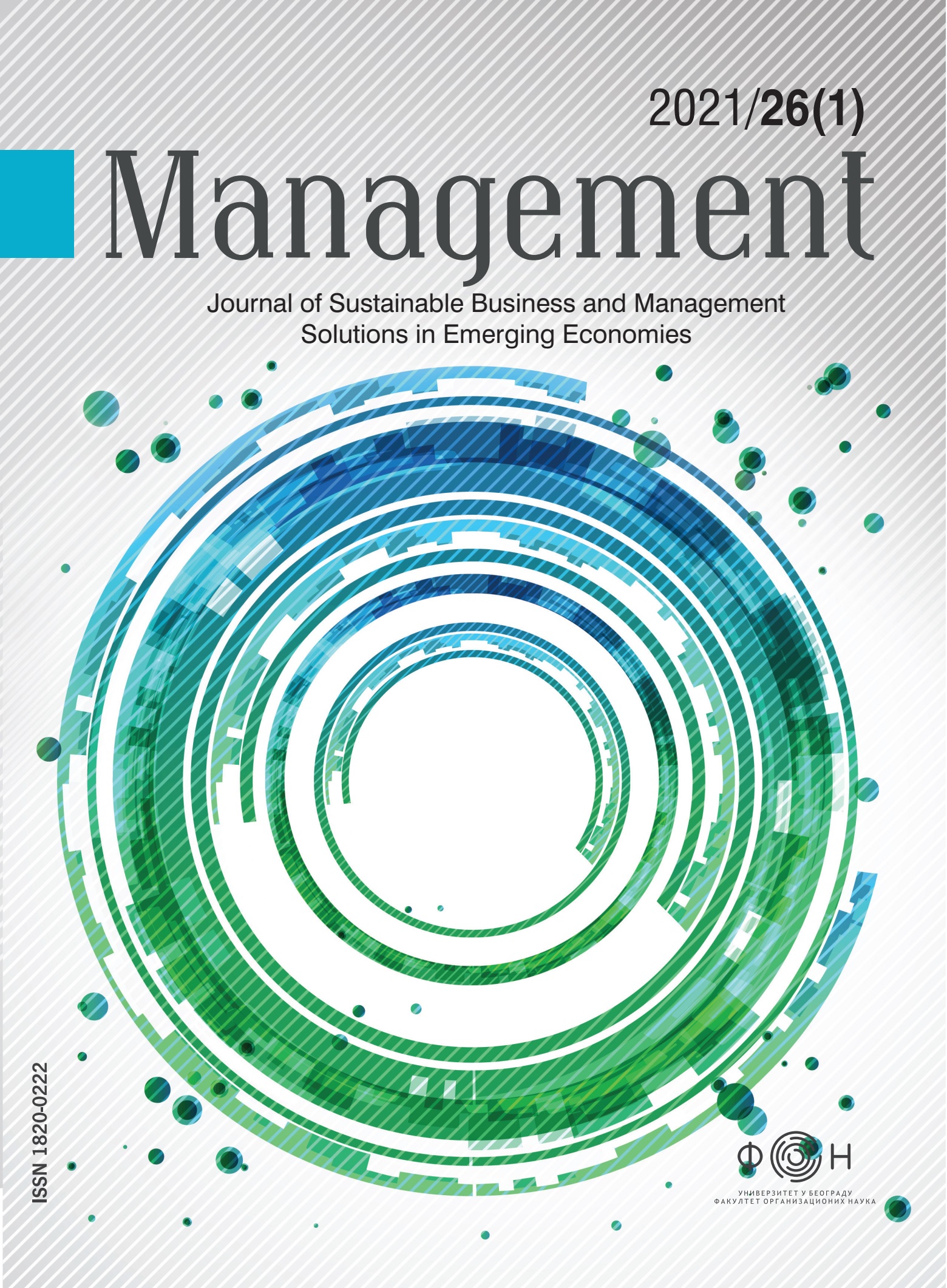Relations between Work-life Conflict, Job Satisfaction and Life Satisfaction among Higher Education Lecturers
Relations between Work-life Conflict, Job Satisfaction and Life Satisfaction among Higher Education Lecturers
Author(s): Miha Marič, Ivan Todorović, Jasmina ŽnidaršičSubject(s): Business Economy / Management, Micro-Economics, Human Resources in Economy
Published by: Fakultet organizacionih nauka Univerziteta u Beogradu (FON)
Keywords: work-life conflict; life; job; satisfaction; organizational behaviour;HR;management;
Summary/Abstract: Research Question: The central research objective of this study was the empirical examination of the relationships between the construct of work-life conflict in terms of life satisfaction and job satisfaction. Motivation: Modern business environment is highly competitive and frequently demands constant participation of employees in the business tasks despite their official working hours or formal job descriptions. This practice did not spare the employees in education (Devonport, Biscomb & Lane, 2008; Salami, 2011), although they are generally satisfied with their jobs (Jordan, Miglic, Todorovic, & Maric, 2017). A healthy work environment is that in which the individual feels comfortable and respected, both as an employee and as a person with a private life that is important for individual satisfaction. As lecturers and researchers employed in higher education institutions, we wanted to examine the work-life balance among our colleagues. Idea: Our main idea was to empirically test a structural model that connects three constructs: work-life conflict, life satisfaction and job satisfaction among the higher education lecturers from different European countries and to determine the relationships by measuring the variables related to respondents from our target group through known and validated questionnaires. Data: The quantitative data for our analysis were collected through a survey of 148 online participants. The participants in this study were higher education lecturers from Austria, Croatia, the Czech Republic, Germany, Serbia and Slovenia. Tools: Work-life conflict was measured by using The work-life conflict survey (Bohen & Viveros-Long, 1981), life satisfaction by using The satisfaction with life scale (Diener, Emmons, Larsen & Griffin, 1985), and job satisfaction by using The job satisfaction survey (Spector, 1997). Findings: The results show that work-life conflict is negatively and statistically significantly related to job satisfaction and work-life conflict is negatively and statistically significantly related to life satisfaction. Affirmative and positive experiences lead towards lower work-life conflict, which consecutively imply a work and life satisfaction among the higher education lecturers. Contribution: The results of our study can be used both for further research in this area and in human resource management (HRM) practice.
Journal: Management: Journal of Sustainable Business and Management Solutions in Emerging Economies
- Issue Year: 26/2021
- Issue No: 1
- Page Range: 63-72
- Page Count: 9
- Language: English

